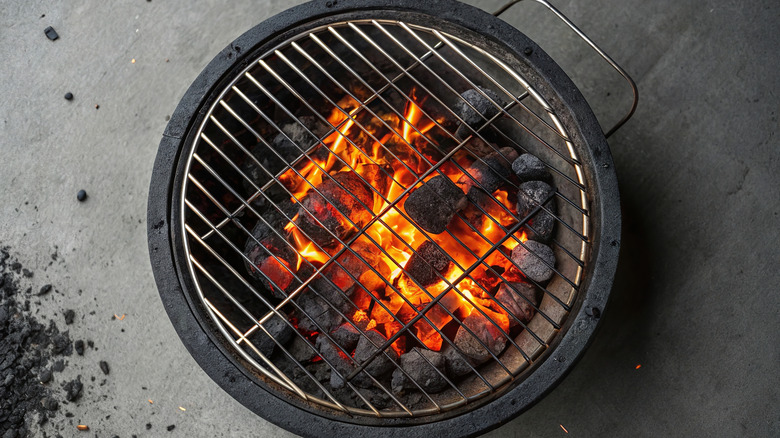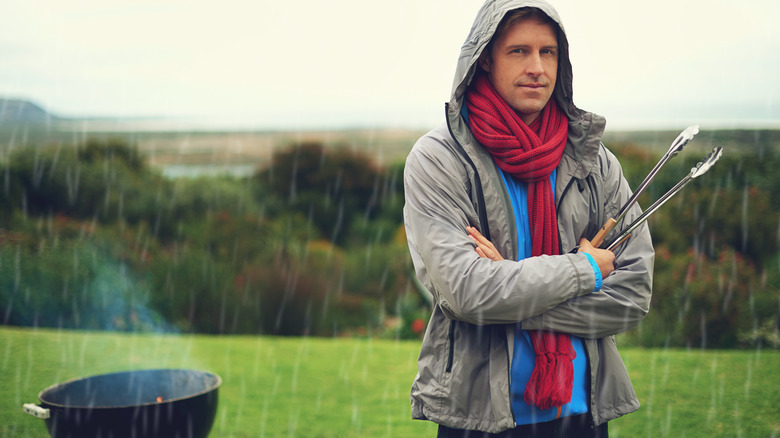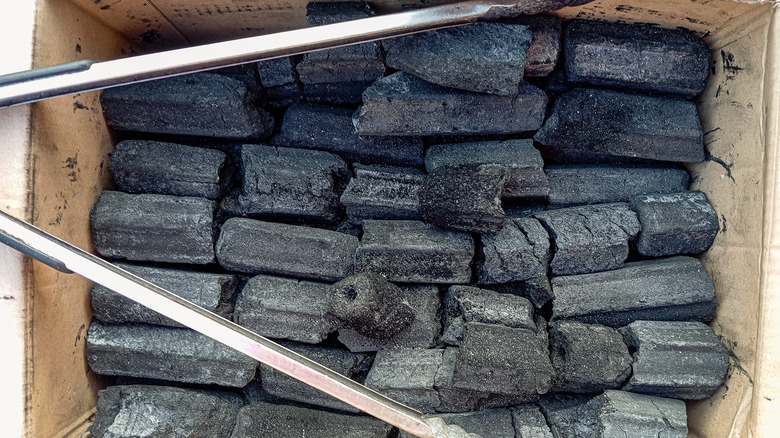What To Do If Your Charcoal Gets Wet
We all face setbacks in life, but that pain you feel from weeks of preparation for your get-together hits differently when you realize something went wrong. The day has arrived, and it's time to fire up the barbecue — and then you discover your charcoal's been soaked and perhaps the store is closed, so it's not easily replaced.
Maybe it rained overnight, or the bag was left open in a damp garage. Either way, you're dealing with wet charcoal, and now you're wondering if the cookout is over and done with. But thankfully, all hope is not lost; just as grilling itself is the easiest type of cooking, there are a few simple ways to recover and get that fire up and going.
Wet charcoal can be frustrating, but it's the type of moisture exposure you're dealing with that'll tell you whether it's the end of the road. The main thing you need to do is to understand the condition of your charcoal, how long it's been exposed, and whether it's still structurally sound. Let's walk through your options and how to avoid the issue next time.
How to tell if wet charcoal is salvageable
There are different types of charcoal, and they don't all react to water in the same way. Lump charcoal — the kind made from natural hardwood — is usually more forgiving. It tends to dry out well, especially if it hasn't been sitting in moisture for too long. You can spread the pieces out in a single layer on a dry surface and let them air out in the sun. Give it a day or two of good weather, and it should be ready to go back in the grill; you just have to make sure to store it somewhere dry afterward.
Briquettes are quite a bit trickier, as they're made with fillers and binders that can break down when soaked and turn crumbly or lose their shape altogether, especially if they're on the cheaper side. If your briquettes are still solid and only a little damp, you can try to dry them out the same way you would with lump charcoal. But if they've gotten mushy or started to fall apart, just throw them out; there's no saving them at that point. Trying to burn compromised briquettes can lead to uneven heat or a fire that's tough to keep going.
No matter what type you're dealing with, never try to burn wet charcoal directly. It won't light properly, and if it does catch, you'll likely end up with tons of smoke and not much heat, which isn't ideal for grilling.
Storage tips to prevent a repeat disaster
The best way to avoid dealing with soggy charcoal is to store it with care, and the most important rule is to keep it dry from jump. A weatherproof bin or heavy-duty storage container with a tight lid can make a huge difference, especially if your charcoal lives in a garage, basement, or shed. Even sealed bags can absorb moisture over time if the environment is humid, so adding a desiccant pack or using an airtight container helps extend shelf life.
If you're storing an open bag, roll it down tightly and keep it off the ground. Place it on a shelf or wooden platform — anything that keeps it away from damp floors or accidental splashes. And if you know rain is coming and your grilling gear is outside, double-check that the charcoal is protected or brought indoors ahead of time.
Ultimately, you have to know your stuff when grilling: everything from whether you have enough charcoal to begin with and what to do if it gets wet to whether flavored charcoal even matters. Accidents happen, but knowing how to handle your charcoal properly helps ensure your grill is always ready when you are.


